8 Common Reasons Women Get Depressed In Their 40s, According To Clinical Psychologist
Midlife comes with its own unique challenges, especially for women.
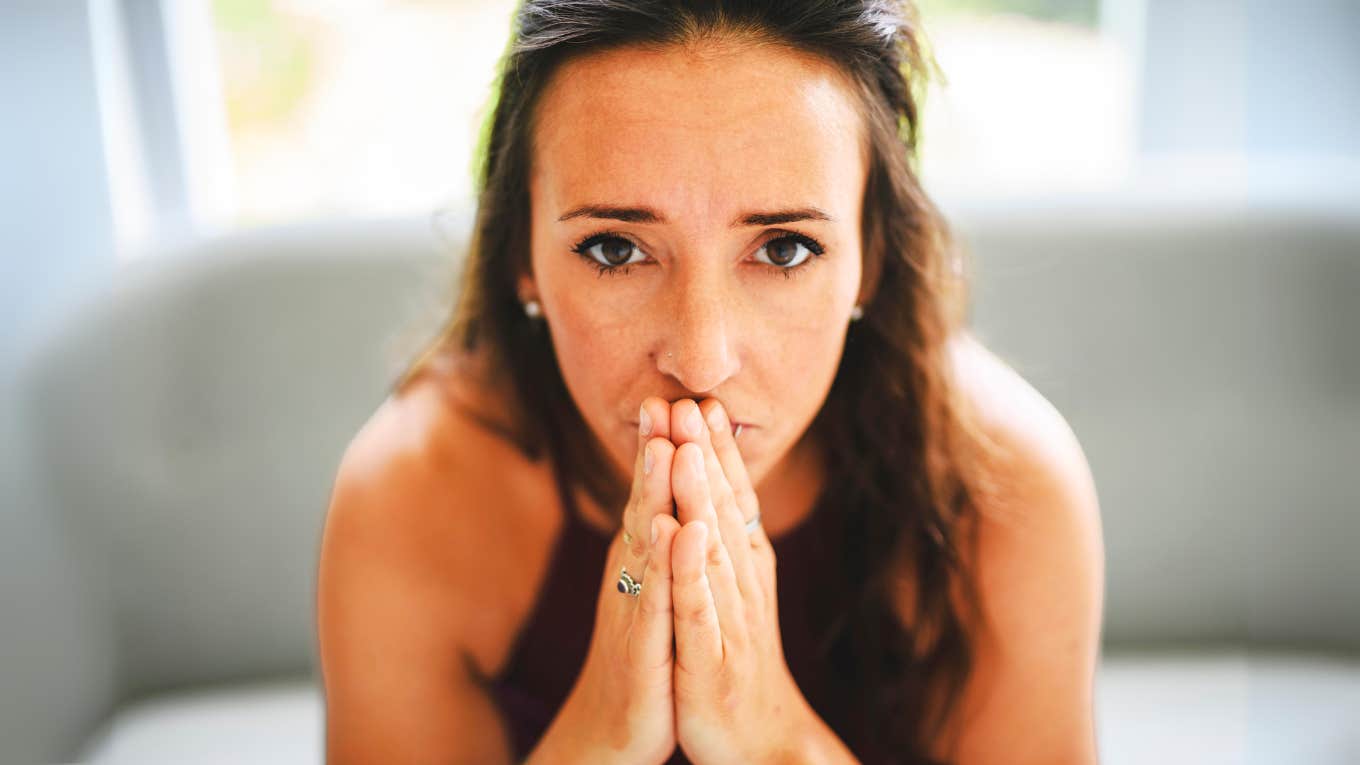 Lopolo | Shutterstock
Lopolo | Shutterstock This is a time for a lot of introspection and change for many women, which often leaves them rethinking career, family obligations, and their relationships. Some woman become embarrassed that they are “still” struggling with issues that they feel they should have worked through earlier in their lives.
There is no shame in any emotional or mental issue, and indeed no statute of limitations on how long someone “should” feel anyway. If you are in this stage of life, consider which of these reasons may impact your mood. If your wife is depressed at this age, express empathy and spark a conversation by asking her which of these she feels are at play.
Here are the 8 reasons women get depressed in their 40s, according to psychology:
1. Perimenopause
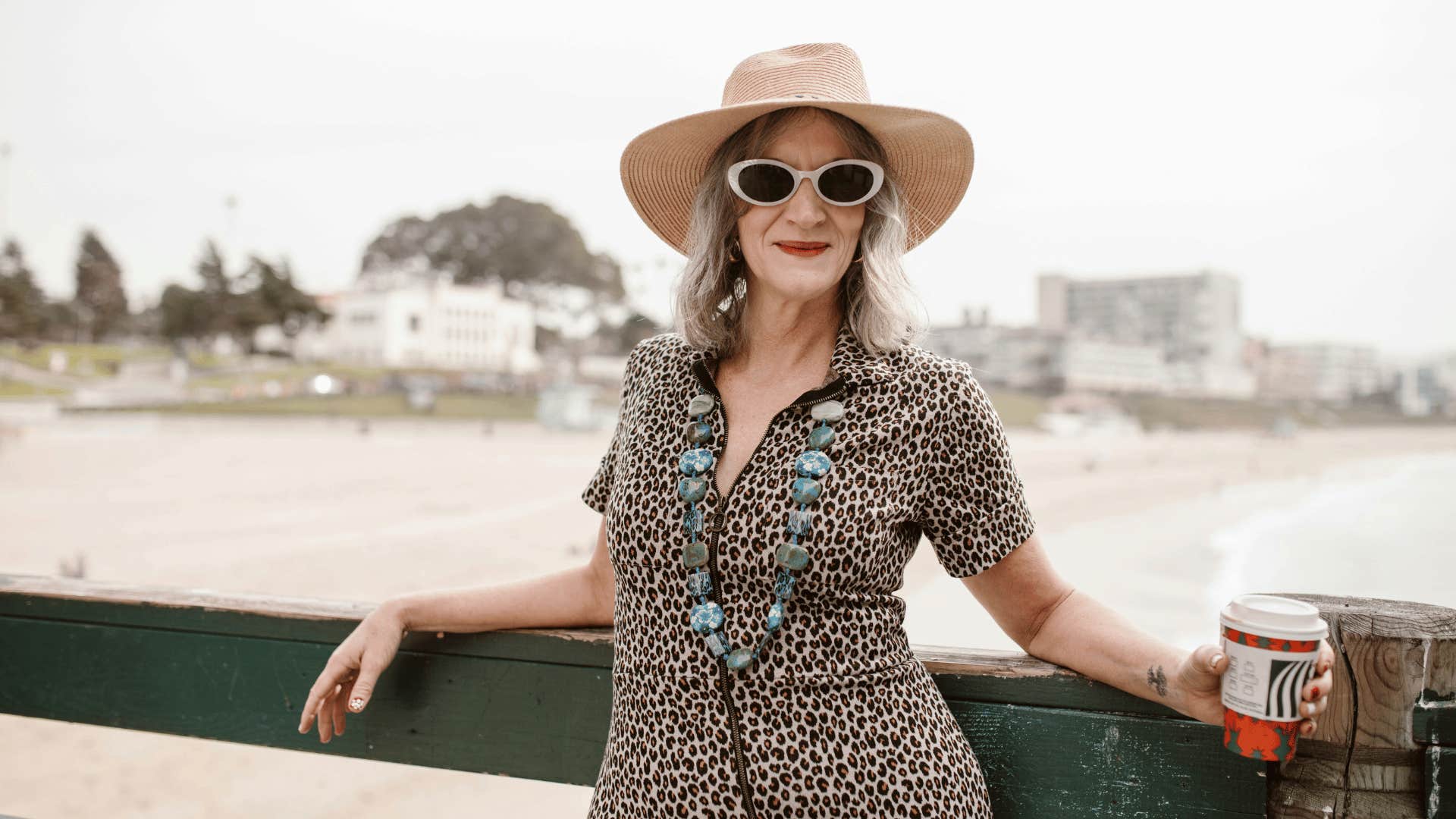 RDNE Stock project | Pexels
RDNE Stock project | Pexels
There are many hormonal and biological changes in women’s 40’s, due to waning fertility and age. A decrease in estrogen means that cycles become more irregular and ovulation is often skipped.
Psychologically, a decrease in estrogen means that women are less invested in caretaking and people-pleasing, which makes sense if you understand that they need less of these traits when they are not going to be caring for young kids. A decrease in testosterone also means that their drives are lower.
2. Body image
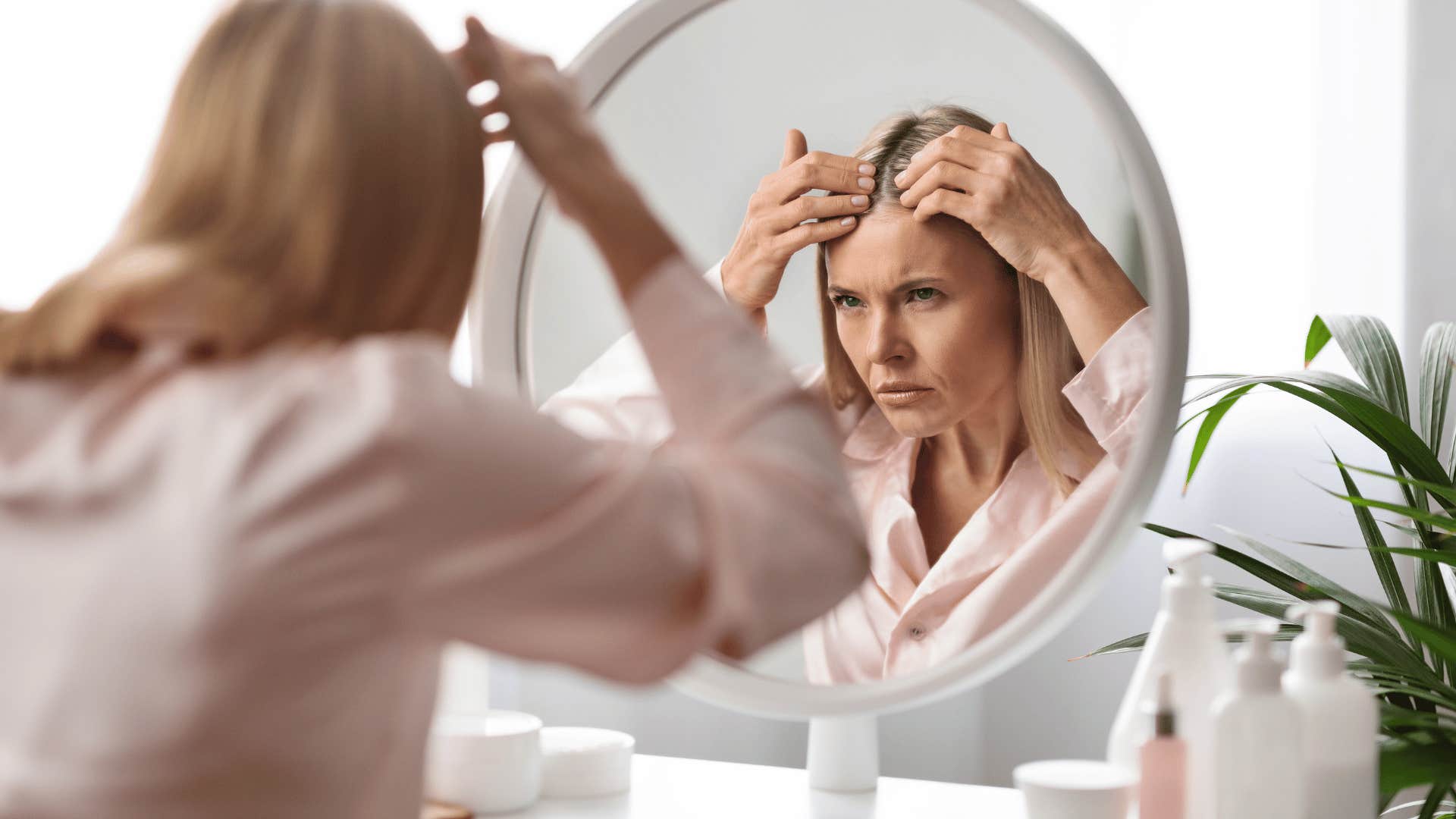 Prostock-studio | Shutterstock
Prostock-studio | Shutterstock
For women who have always been considered fit and attractive, there is a very real decrease in how your metabolism works and how you are perceived when you hit your 40s. Certainly, men like older women, but if you used to be a head-turner in your 20s, it will not likely be the same in your 40’s, examples of Sophia Loren notwithstanding.
For women who base a large part of their self-worth on their ability to be the most attractive woman in the room, this can be a difficult transition. A 2014 study reported that 47% of Caucasian and African American middle-aged women were dissatisfied with their appearance. Further, 73% of the sample reported being somewhat unsatisfied with their weight.
3. Parenting regret
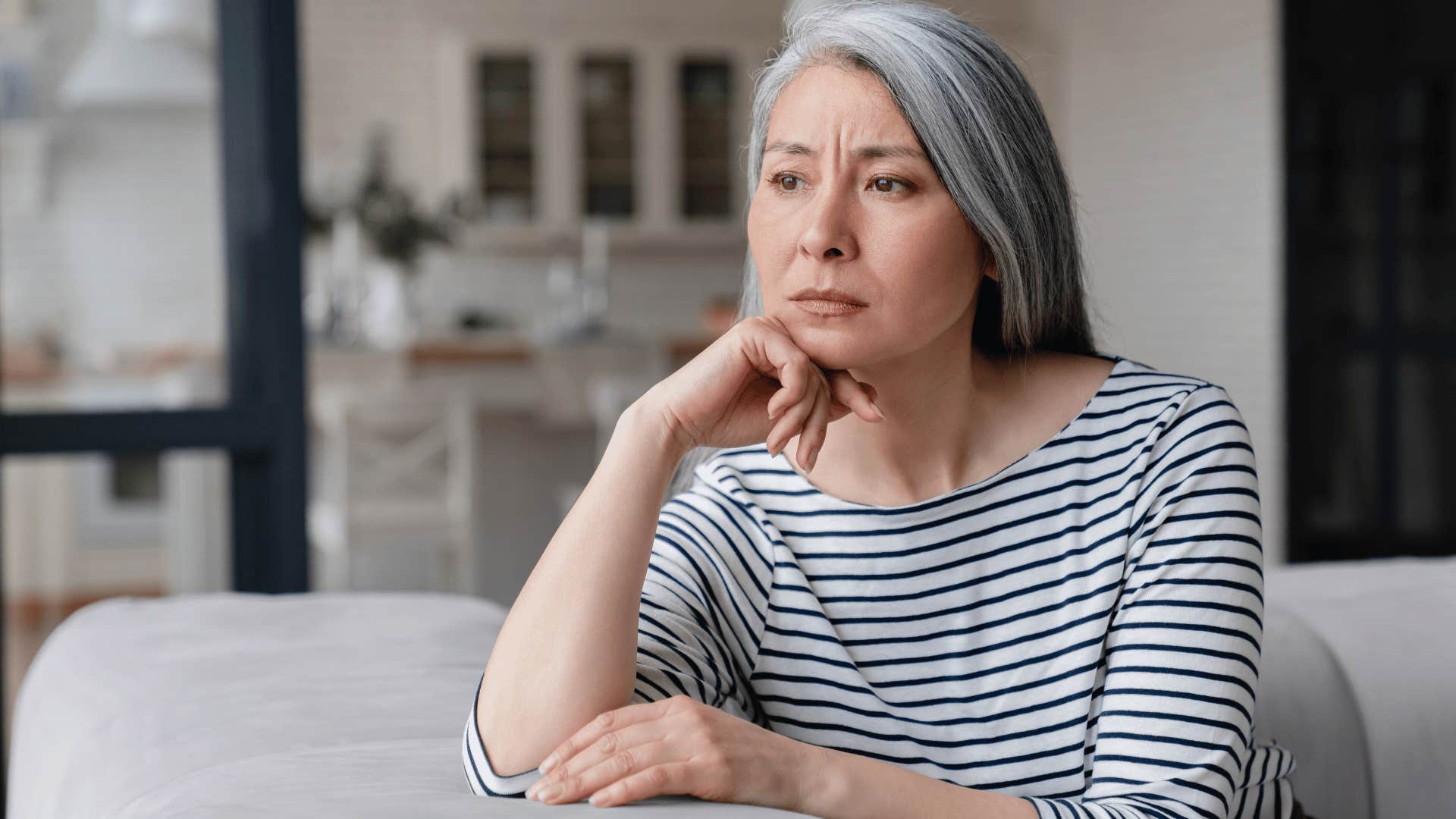 Inside Creative House | Shutterstock
Inside Creative House | Shutterstock
At this stage, many women have children who are no longer just “potential,” but grown human beings, in elementary school through high school. If you feel that you were not the mother you wanted to be throughout the kids’ younger years, possibly due to post-partum depression/anxiety, unresolved childhood issues, or a bad marriage, then this can lead to many parenting regrets.
This contributing variable to women’s midlife depression is much more common than men realize because women think about their kids far more than their husbands realize overall.
4. Stay at home mom regrets
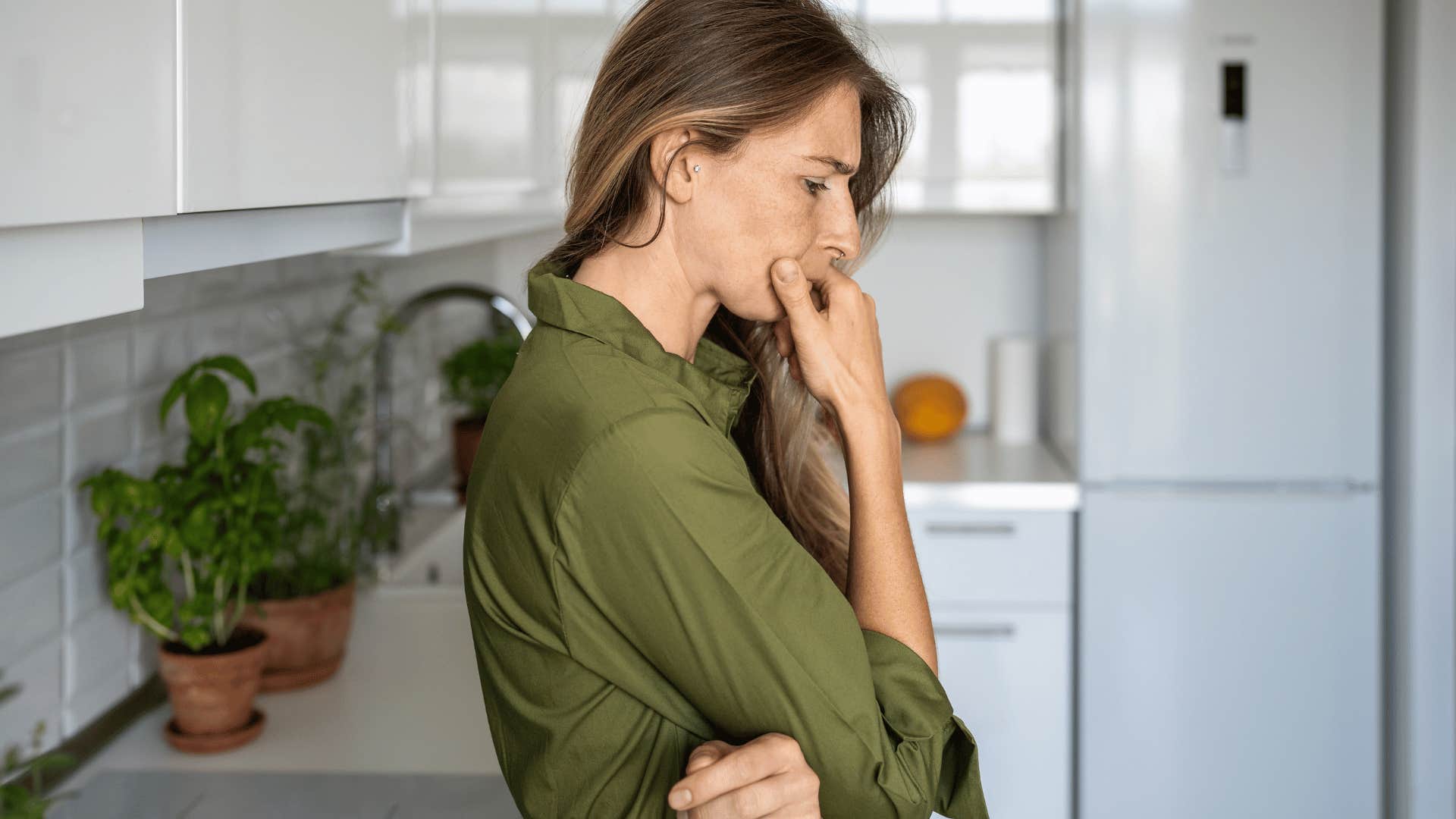 DimaBerlin | Shutterstock
DimaBerlin | Shutterstock
At midlife, all people tend to introspect about their purpose in the world, which includes the choice to stay home with children. Some women regret staying home with kids, particularly if their kids are now adolescents who are not much fun to be with, and if they think that staying home limited their financial independence and/or kept them in a bad marriage.
It is hard for perimenopausal women, who are biologically feeling much differently now, to remember the young mother stage, especially if they are currently depressed and looking back at everything as worse than it was. And many, many women want to start or restart a career but feel that this would be difficult or impossible because of many years at home.
5. Career regrets
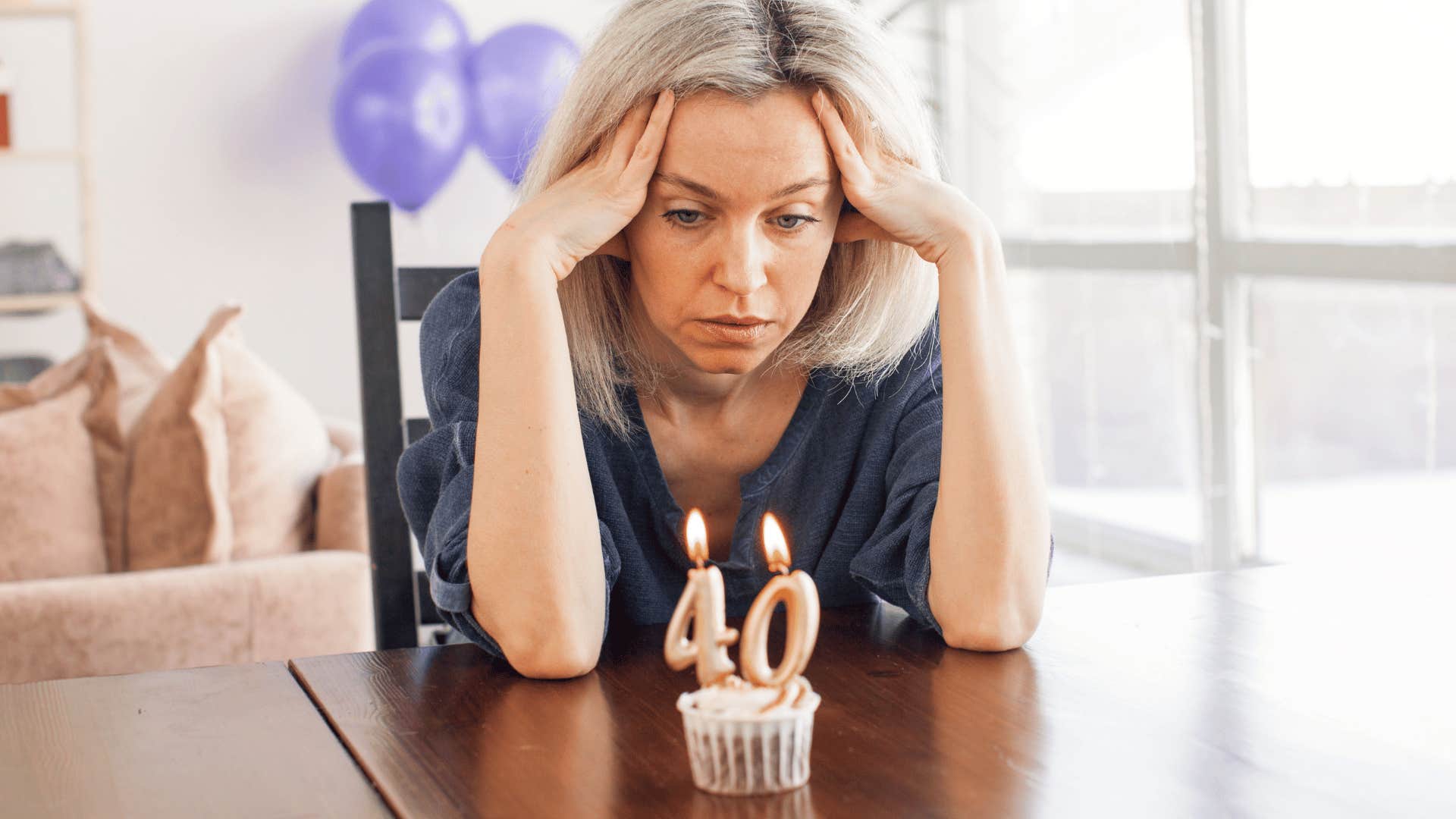 Gladskikh Tatiana | Shutterstock
Gladskikh Tatiana | Shutterstock
On the other end of the spectrum, many women feel that they spent too much time on their careers and missed staying home with little kids. They may blame themselves or their husbands for this choice (many of these women were sole or primary breadwinners), feeling that they allowed their husbands to stay un- or under-employed to keep the peace while they missed out on years they could never get back.
Other women feel that they stayed in a career they never loved for too long, or feel burned out on careers that involve a lot of emotional labor (teacher, therapist, nurse) and not as much pay.
6. Sadness about the children growing up
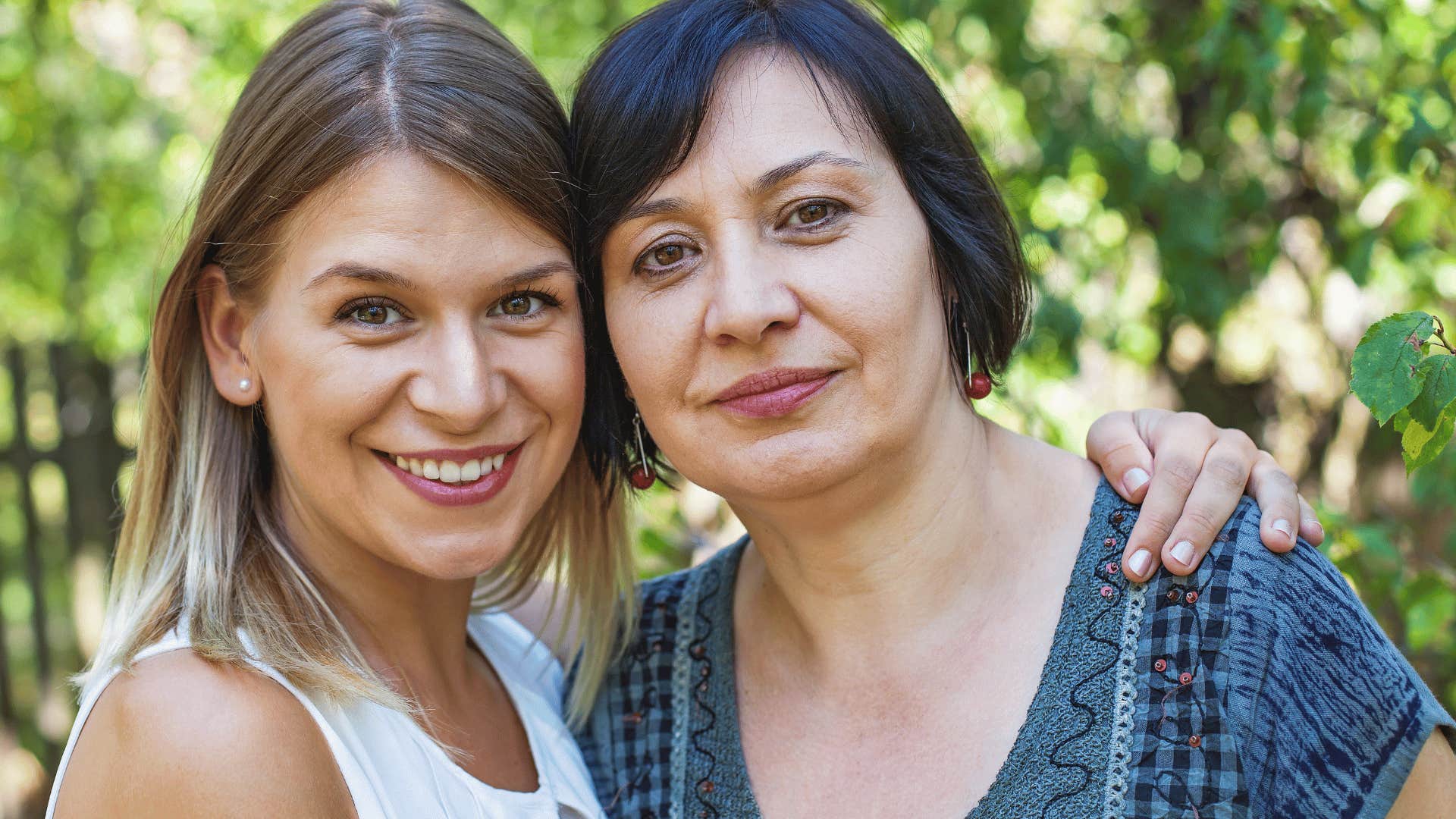 Ocskay Mark | Shutterstock
Ocskay Mark | Shutterstock
This bittersweet transition can be more difficult for women who are also Highly Sensitive, tend toward depression, or view the young kids' phase as a highlight of their lives that they had always looked forward to. While their husbands can more easily see the positives of the children’s increased independence, some women find this stage to be fraught with grief for many reasons discussed in that linked post.
According to research from the Indian Journal of Mental Health, when children leave the nest, it can feel oddly bittersweet. It can create an overwhelming sense of loss and grief. You may be afraid that you are aging and your child will not be around to take care of you. You may not think your child is making the right decisions in life. Perhaps you don’t agree with their career path, where they live, what they are studying, or who they have chosen as a life partner.
7. Marriage issues
 Kinga | Shutterstock
Kinga | Shutterstock
Many women look objectively at their marriages for the first time when their kids get older, and their hormonal levels change. They are no longer clouded by their desire to keep a family together if their kids are not home very soon.
Plenty of relationship issues that were pushed to the back burner during younger years start to become more and more evident as the couple spends more alone time together when the older children pursue their own hobbies and social lives on the weekends. Many women who subconsciously chose a husband because he would be a good parent now feel, “When is it my turn to be happy?”
Women who were putting up with intimacy-less marriages also think that their 40s may be their last chance ever to be romantically fulfilled in a relationship, as they fear that by menopause and beyond, it may be too late to find this.
8. Family of origin issues
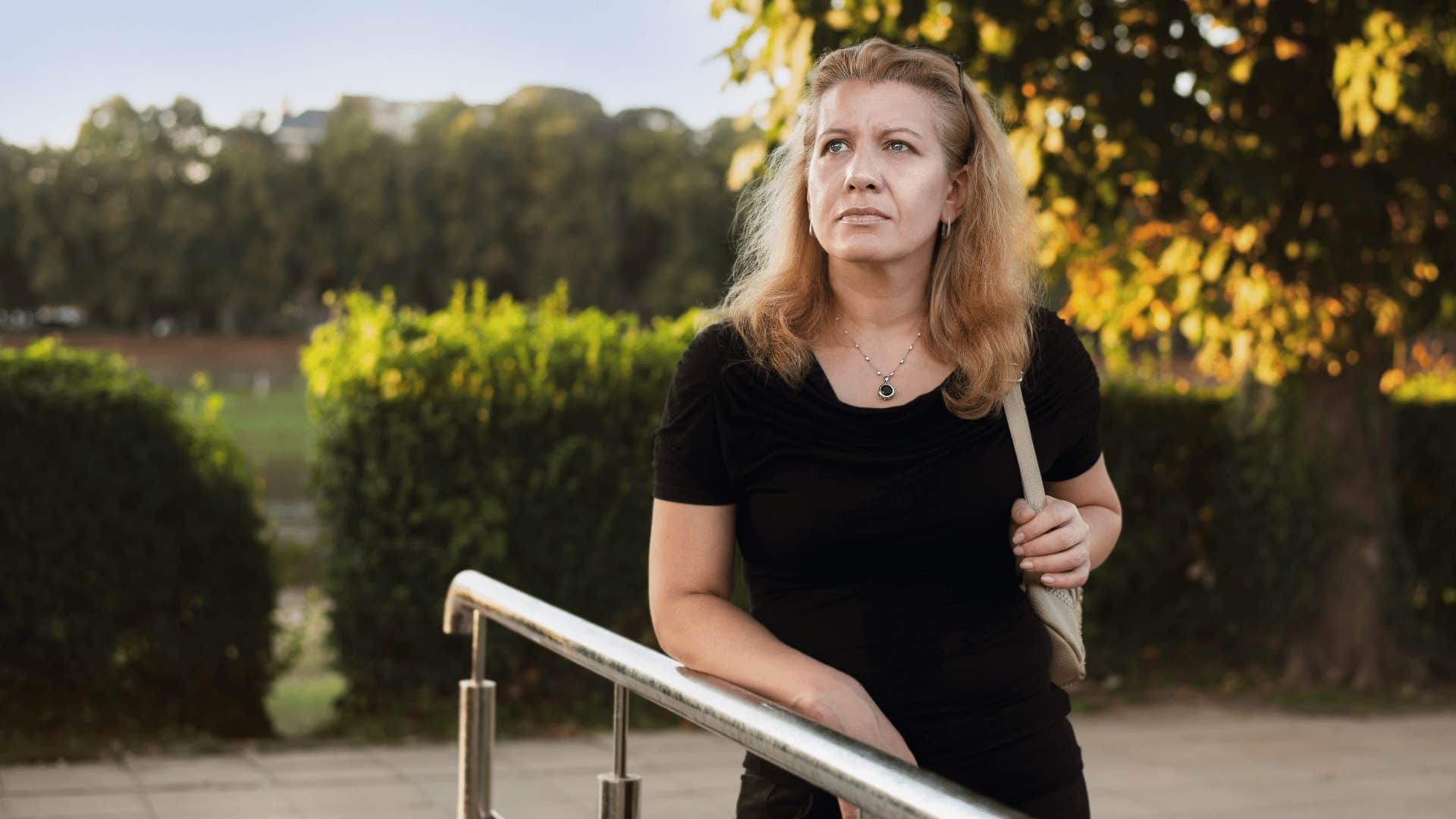 Marian Fil | Shutterstock
Marian Fil | Shutterstock
As parents get older and need care, many women find themselves enmeshed, with far more day-to-day contact with aging, difficult parents than they want. More women than men take on this caretaker role of aging parents, particularly if they are stay-at-home moms.
On the other end of the spectrum, many women are very close to parents who have been a support to them, and the loss or potential loss of such parents can lead to a great deal of anxiety, sadness, and grief (anticipatory or at the point of loss).
Either way, many women look forward to their children growing more self-sufficient, only to be blindsided by their parents’ loss of function, which means that they are again in a caretaker role. This can make them feel trapped and resentful, and for some, guilty about these feelings.
Dr. Samantha Rodman Whiten, aka Dr. Psych Mom, is a clinical psychologist in private practice and the founder of DrPsychMom. She works with adults and couples in her group practice Best Life Behavioral Health.

